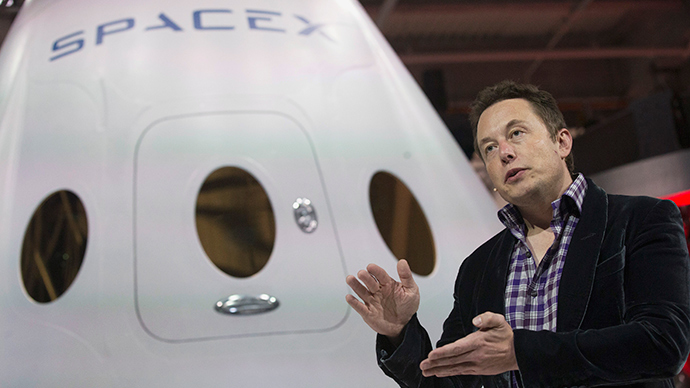Space Net: Elon Musk confirms plans to provide global internet from 100’s of satellites

SpaceX founder Elon Musk says he is working on a program to launch hundreds of lowcost satellites that could provide worldwide WiFi. The project is still in the early stages of development, with Musk promising more information soon.
The billionaire is no stranger to taking technology to new horizons. He revolutionized the auto industry by producing electric cars, while his SpaceX program has already seen him send spacecraft to the International Space Station.
However, the South African born billionaire now has his sights set on something perhaps even greater – potentially providing internet access to every corner of the globe – from Antarctica to the Sahara Desert. The satellites are expected to be significantly smaller than conventional satellites and will weigh less than 250 pounds (113kg).
Musk announced on Twitter on Monday that “SpaceX is still in the early stages of developing advanced micro-satellites operating in large formations. Announcement in 2 to 3 months.”
SpaceX is still in the early stages of developing advanced micro-satellites operating in large formations. Announcement in 2 to 3 months.
— Elon Musk (@elonmusk) November 11, 2014
The aim is to put around 700 satellites into orbit around the globe to create coverage around the planet. In a response to one of his followers on Twitter, who asked, “I hope this is about free and unfettered internet access for the masses,” Musk responded that it would be, “unfettered certainly and at very low cost.”

There will be more information about the project in the next few months. However, it has been confirmed that Musk will be able to call upon the expertise of Greg Wyler, a veteran of the satellite industry and founder of WorldVu Satellites Ltd, the Wall Street Journal said.
@Shmizer1 unfettered certainly and at very low cost
— Elon Musk (@elonmusk) November 11, 2014
It’s likely that SpaceX will have plenty of competition though, with the US based firm, Sierra Nevada Corp and the UK’s Surrey Satellite Technology Ltd, also known for being able to produce small-scale satellites.
The idea of trying to bring wireless internet to the masses from above is nothing new. Google had a flirted with using weather balloons, while Facebook contemplated using high-flying drones to provide widespread internet access.
SpaceX has already been cashing in on the space transportation market, after NASA ended its shuttle program in 2011. The SpaceX’s unmanned Dragon vessel is currently the only spacecraft that is capable of docking with the International Space Station and then returning to earth with cargo.














